
Sascha Pare
Sascha is a U.K.-based staff writer at Live Science. She holds a bachelor’s degree in biology from the University of Southampton in England and a master’s degree in science communication from Imperial College London. Her work has appeared in The Guardian and the health website Zoe. Besides writing, she enjoys playing tennis, bread-making and browsing second-hand shops for hidden gems.
Latest articles by Sascha Pare
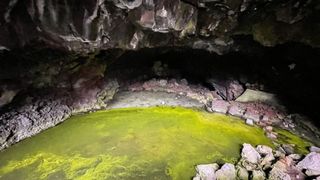
Bandera Volcano Ice Cave: The weird lava tube in New Mexico whose temperature is always below freezing
By Sascha Pare published
Due to a weird quirk of geology, New Mexico's Bandera Volcano Ice Cave never warms above 31 degrees Fahrenheit, even when temperatures outside exceed 100 F in summer.
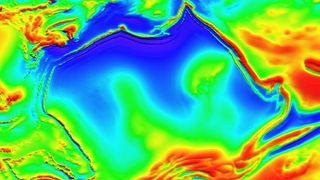
New map shows weird magnetic anomaly lurking beneath Australia's Northern Territory
By Sascha Pare published
Advanced modeling has revealed an Australia-shaped magnetic anomaly beneath the country's Northern Territory that holds valuable information about Australia's geological history.
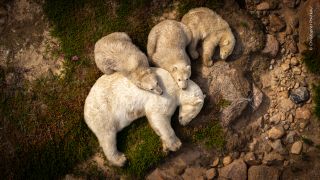
Grim photo captures polar bear mom and cubs resting in mud in summer heat
By Sascha Pare published
An image of polar bears napping along the Hudson Bay coast in Canada has been shortlisted for the Wildlife Photographer of the Year Nuveen People's Choice Award 2026.
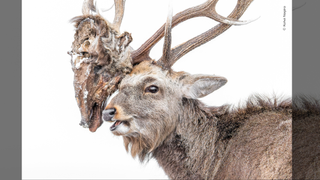
A deer carrying the rotting head of its vanquished foe and a playful lynx shortlisted for Wildlife Photographer of the Year Nuveen People's Choice Award
By Sascha Pare published
Here are the 24 images shortlisted for the Wildlife Photographer of the Year Nuveen People's Choice Award 2026.
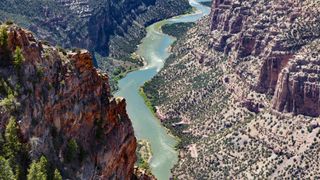
The Colorado River's largest tributary flows 'uphill' for over 100 miles — and geologists may finally have an explanation for it
By Sascha Pare published
Millions of years ago, the Green River carved a path through the Uinta Mountains instead of flowing around the formation. Now, researchers have discovered how this could have happened.
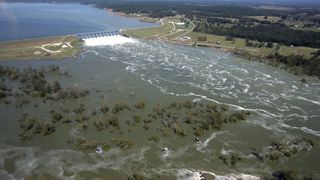
Thousands of dams in the US are old, damaged and unable to cope with extreme weather. How bad is it?
By Sascha Pare published
Dams in the U.S. are showing signs of damage that are worsening with age and climate change. Could satellites help prioritize repairs amid budget and inspection constraints?
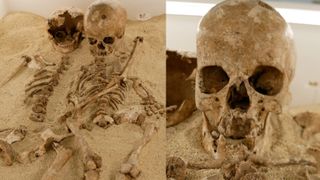
Teenage girl who lived in Italy 12,000 years ago had a rare form of dwarfism, DNA study shows
By Sascha Pare published
In 1963, researchers unearthed two Stone Age skeletons that were buried in an embraced position in a cave in Italy. Now, DNA testing has revealed that one of them had a rare genetic condition.

People, not glaciers, transported rocks to Stonehenge, study confirms
By Sascha Pare published
A new analysis of mineral grains has refuted the "glacial transport theory" that suggests Stonehenge's bluestones and Altar Stone were delivered to Salisbury Plain by glaciers.
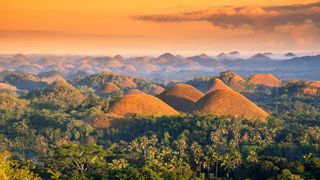
Chocolate Hills: The color-changing mounds in the Philippines that inspired legends of mud-slinging giants
By Sascha Pare published
The Chocolate Hills are 1,776 mounds on Bohol Island in the Philippines where grassy cover turns brown during the dry season.

Enormous freshwater reservoir discovered off the East Coast may be 20,000 years old and big enough to supply NYC for 800 years
By Sascha Pare published
An expedition off the coast of Massachusetts has confirmed the existence of a freshwater reservoir beneath the seafloor. Now, scientists are starting to understand when and how it formed.
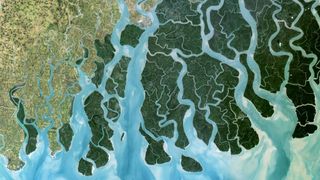
18 of Earth's biggest river deltas — including the Nile and Amazon — are sinking faster than global sea levels are rising
By Sascha Pare published
Worldwide, millions of people live in river deltas that are sinking faster than sea levels are rising, research suggests. This exacerbates the risk of catastrophic coastal flooding and land loss.
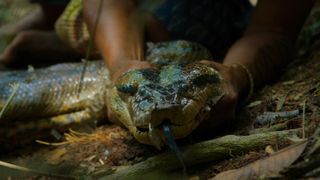
Never-before-seen footage captures moment scientists find new, giant anaconda species in Amazon
By Sascha Pare published
Scientists recently discovered a new species of green anaconda in the Amazon rainforest. A new Nat Geo series shows the moment they encountered this snake in the wild.
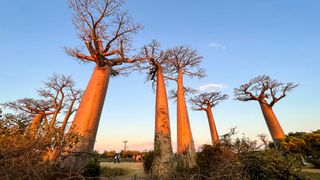
Avenue of the Baobabs: Madagascar's natural monument with dozens of 'mother of the forest' trees
By Sascha Pare published
The Avenue of the Baobabs preserves the remnant trees of an ancient tropical forest on Madagascar.

NASA announces unprecedented return of sick ISS astronaut and crew
By Sascha Pare last updated
NASA has announced the early return of Crew-11 from the International Space Station after an unidentified astronaut experienced a medical problem.

Leonardo da Vinci's DNA may be embedded in his art — and scientists think they've managed to extract some
By Sascha Pare published
In a first, scientists have extracted DNA from a Renaissance-era drawing attributed to Leonardo da Vinci, but they can't be sure that the genetic material belongs to the Italian polymath.
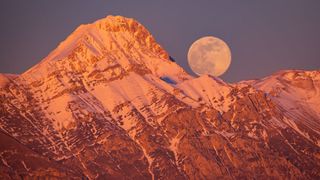
'Wolf Supermoon' gallery: See the first full moon of 2026 in pictures from across the world
By Sascha Pare published
The first full moon of 2026 shone brightly Saturday (Jan. 3). Known as the Wolf Moon, it appeared more luminous and larger than usual, rising together with Jupiter.
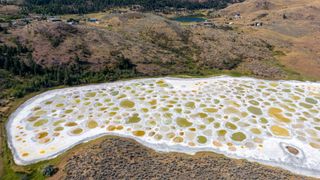
Spotted Lake: Canada's soda lake with colorful brine pools that are smelly and slimy 'like the white of an egg'
By Sascha Pare published
Spotted Lake is a soda lake that evaporates every summer, leaving a white crust with circular brine pools that can appear blue, green or yellow.
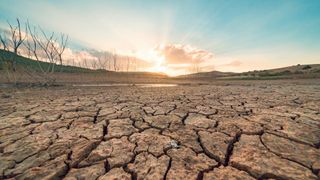
Enough fresh water is lost from continents each year to meet the needs of 280 million people. Here's how we can combat that.
By Sascha Pare published
Earth's continents are losing 4 Olympic swimming pools' worth of fresh water every second, with dire consequences for jobs, food security and water availability.
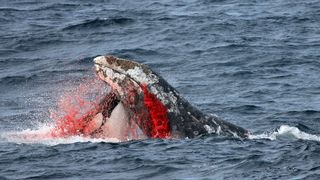
Orcas are adopting terrifying new behaviors. Are they getting smarter?
By Sascha Pare published
From sinking boats and feasting on shark livers to dining on whale tongue and tossing porpoises around for fun, orcas are displaying some fascinating — and sometimes terrifying — behaviors.
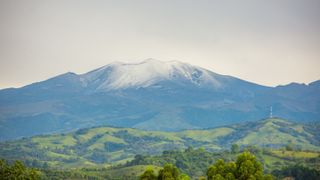
Coconucos volcanic chain: Colombia's stunning cluster of volcanoes, lost in an otherworldly landscape
By Sascha Pare published
The Coconucos volcanic chain is a mountain ridge dotted with at least 14 volcano craters, including one that is active and erupted in December 2025.
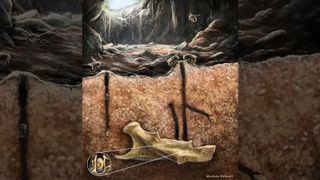
Ancient burrowing bees made their nests in the tooth cavities and vertebrae of dead rodents, scientists discover
By Sascha Pare published
Scientists made a unique discovery in a cave on the Caribbean island of Hispaniola: dozens of fossilized bee nests inside rodent bones that were deposited by owls thousands of years ago.
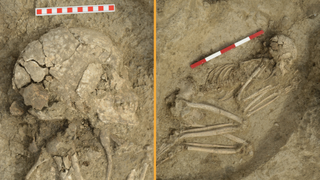
Brutal lion attack 6,200 years ago severely injured teenager — but somehow he survived, skeleton found in Bulgaria reveals
By Sascha Pare published
Extremely rare evidence of a lion attack on a teenage boy's remains suggests the teenager survived the initial trauma but became severely disabled, requiring support from his community.
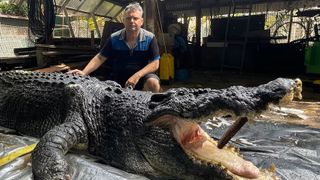
Cassius the giant crocodile died from sepsis after 40-year-old dormant infection burst from 'abscess,' necropsy reveals
By Sascha Pare published
Cassius was an 18-foot-long saltwater crocodile living in captivity in Marineland Crocodile Park in Australia. He died last year at the age of about 120, and we finally know why.
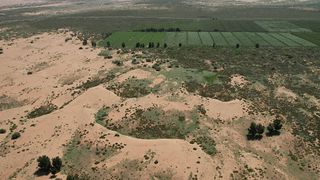
China's Great Green Wall: The giant artificial forest designed to slow the expansion of 2 deserts
By Sascha Pare published
Since 1978, China has planted more than 66 billion trees along its 2,800-mile-long northern border, and it wants to plant 34 billion more over the next 25 years to complete its "Great Green Wall."
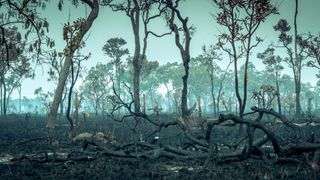
Amazon rainforest is transitioning to a 'hypertropical' climate — and trees won't survive that for long
By Sascha Pare published
The Amazon rainforest currently has a few days or weeks of hot drought conditions per year, but researchers say this could increase to 150 days per year by 2100.
Get the world’s most fascinating discoveries delivered straight to your inbox.
